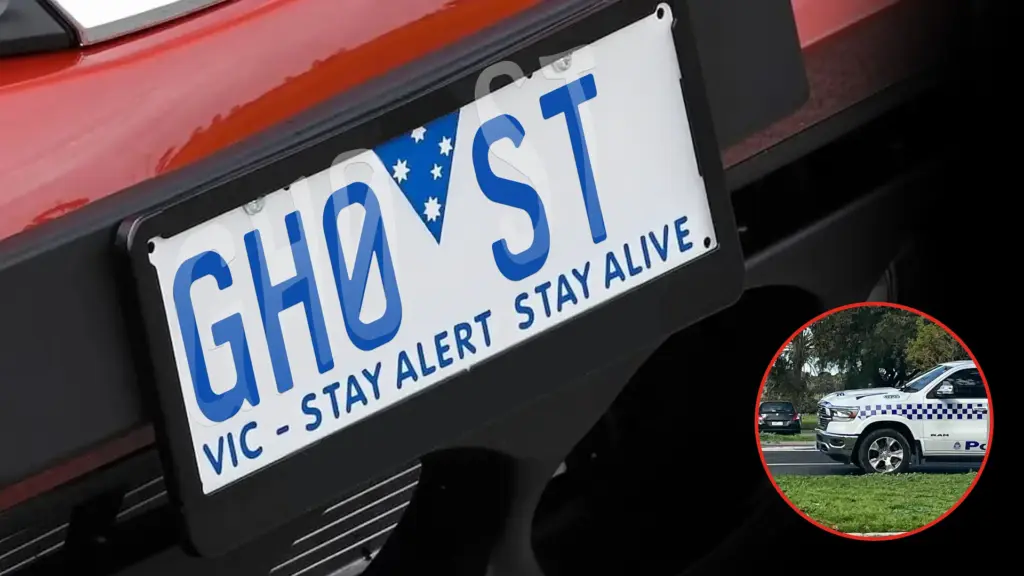
Victoria Police’s data recording practices are facing renewed scrutiny following revelations that the use of ‘ghost plates’ in crimes is not being accurately documented. This lack of clarity raises concerns about the frequency and impact of such activities in the state. The issue centers around the illegal replication of vehicle registration numbers, leading to the creation of duplicate plates that are often affixed to stolen vehicles of the same make and model.
The cloning of legitimate number plates means that vehicle owners typically only become aware of the duplication when they receive an infringement notice or a police notification. Frustrated victims frequently take to social media to express their grievances about receiving fines and toll charges incurred by the fraudulent users of their cloned plates. However, the absence of comprehensive data leaves Victorians uncertain about the prevalence of this issue.
Data Recording Challenges
Victoria’s Crime Statistics Agency (CSA) compiles and publishes data on the physical theft of number plates within the state. However, according to the CSA, while Victoria Police does record some information regarding the use of cloned or false number plates in crimes, the data is incomplete and thus not suitable for statistical analysis.
“Victoria Police do record whether cloned or false number plates are used during an offence (recorded via the non-mandatory Modus Operandi (MO) codes); however, the majority of offences have missing data for the MO code,” a CSA staff member explained. “The CSA has determined that these data are not of sufficient quality to be used for general statistical purposes and do not include these data in our output datasets.”
This lack of reliable data makes it challenging to fully understand the extent of plate cloning in Victoria. Victoria Police did not respond to inquiries about any future plans to enhance the accuracy of their data recording practices concerning cloned or false number plates.
Impact on Crime and Law Enforcement
A Victoria Police spokesperson acknowledged the serious implications of number plate theft and cloning, noting that these activities often underpin more severe criminal offenses.
“Stolen and cloned numberplates can be used by offenders to hide the identity of a vehicle when committing other crimes such as burglaries, ram raids, petrol drive-offs, toll evasion, and to evade police,” the spokesperson said.
Statistics indicate that some types of serious offenses are on the rise in Victoria. For instance, there were 32,997 instances of motor vehicle theft in the 12-month period ending June 2025, a significant increase from the 23,229 instances recorded between June 2023 and June 2024.
Victoria Police reported that 5,525 infringement notices were canceled due to fraudulent (stolen and cloned) number plates between July 1, 2024, and June 30, 2025.
Police utilize Automatic Numberplate Recognition Technology (ANRT) to scan number plates and identify those reported as stolen or cloned. Despite these efforts, the challenge remains significant.
Preventive Measures and Technological Interventions
Victoria Police advises drivers to take precautions to prevent plate cloning, such as blurring vehicle number plates in online images and videos, especially when advertising a vehicle for sale. Additionally, anti-tamper screws can be purchased to make it more difficult for number plates to be physically stolen from cars.
“Vehicle owners should report numberplate theft and suspected cloning activity to Victoria Police via Crime Stoppers, or through the Police Assistance Line on 131 444,” the spokesperson advised. “If you receive an infringement notice and your number plates have been stolen or cloned, you need to complete a nomination statement through Fines Victoria and include a police report reference number.”
In a bid to curb the replication of number plates, the Victorian Government announced in late 2022 that all general issue standard car number plates would feature embedded “hologram” technology from December 30, 2022, aimed at making unauthorized reproduction impossible. The Department of Transport and Planning has been contacted for updates on the effectiveness of this technology since its introduction.
As Victoria grapples with the challenges posed by ‘ghost plates,’ the need for improved data recording and technological solutions remains critical. The ongoing scrutiny of Victoria Police’s processes underscores the importance of addressing these gaps to enhance public safety and trust.







